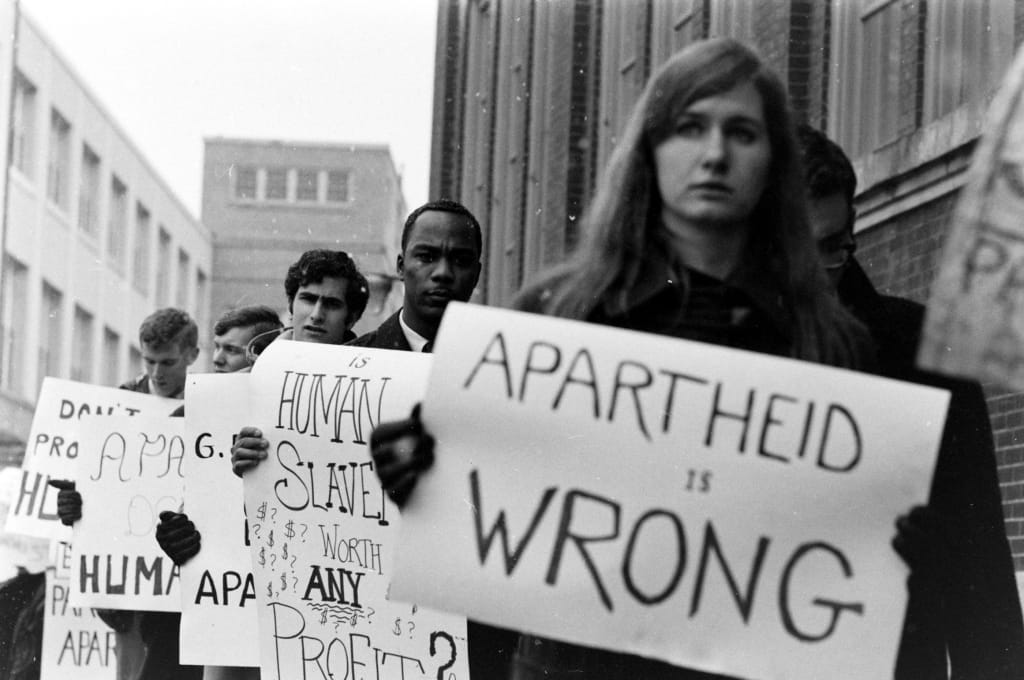Apartheid In South Africa After Nelson Mandela
Is south Africa Still in Apartheid?

Apartheid was a system of institutionalized racial segregation and discrimination that existed in South Africa from 1948 to the early 1990s. Enforced by the National Party government, it separated the population into racial groups, primarily privileging the white minority and marginalizing the black majority. Laws restricted the movement, education, and job opportunities of non-white South Africans, perpetuating systemic inequality. Apartheid sparked domestic and international opposition, with widespread protests and sanctions. Nelson Mandela's release from prison in 1990 marked the beginning of the end, leading to negotiations and the eventual dismantling of apartheid. Mandela's election as president in 1994 symbolized the nation's transition to democracy.
For a brief moment, optimism prevailed. Apartheid, the oppressive system that had divided South Africa into two distinct nations based on race, had come to an end. The country, long characterized by the stark contrast between the affluent, Westernized white population and the impoverished black majority, now stood at the threshold of a new era. The release of political prisoners, notably Nelson Mandela, symbolized hope for reconciliation and unity. As the structures of apartheid crumbled, Mandela negotiated a peaceful transition, culminating in South Africa's first democratic election, where Mandela emerged as the President.
At that juncture, the world saw South Africa as a beacon of potential. Endowed with abundant mineral wealth, a diversified economy, and a well-educated workforce, the nation seemed poised to demonstrate the possibilities of African economic and human development. The key challenge for Mandela and the African National Congress (ANC) was to build a black middle class, breaking the cycle of poverty that had persisted for generations.
Initially, progress appeared promising. Black individuals secured positions in public sector jobs, and desegregation extended to various professions, transforming once impoverished townships into thriving suburban neighbourhoods. The growth of the black middle class, as indicated by one study, surged from 1.7 million in 2004 to 4.2 million in just eight years. South Africa's hosting of the 2010 FIFA World Cup further showcased its capability on the global stage.
However, beneath the surface of these achievements, challenges emerged. The infrastructure, neglected during years of apartheid, began to crumble. The power utility, Eskom, faced chronic issues, leading to regular blackouts and an unprecedented decline in the quality of public services. While efforts were made to address historical injustices, the ANC's approach, outlined in a lengthy white paper, proved insufficient and lacked clarity.
As the country struggled to maintain stability, a series of crises unfolded. Water shortages in Cape Town, rising crime rates, and the decline of essential services highlighted a regression rather than progress. Economic growth fell short of expectations, and Eskom's mismanagement and corruption allegations further compounded the nation's woes.
The once vibrant picture painted by the 2010 World Cup began to fade, giving way to a harsh reality. Rolling blackouts, escalating crime, and a weakened economy prompted a growing number of South Africans, especially the affluent, to seek alternatives. Private security industries flourished, and some communities took matters into their own hands, addressing issues such as potholes and streetlights independently.
The decline wasn't confined to economic indicators; it permeated societal well-being. Emigration became a prevalent response among the wealthy, leading to a drain of resources and skills. South Africa's decline became a stark contrast to the positive trajectories seen across the African continent.
As the ANC's popularity waned and corruption scandals unfolded, the country faced a critical juncture. The 2024 elections held the potential for a shift in political dynamics. Yet, the persistent challenges, from power shortages to institutional decay, painted a grim picture of South Africa's future. While hope remained, the urgency to redirect the nation's trajectory intensified with each passing day.






Comments
There are no comments for this story
Be the first to respond and start the conversation.